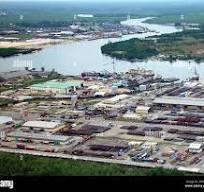By Enyeribe Anyanwu
After failing in their bid to get the federal government to cancel the naira-for-crude sale deal that brought succor to suffering Nigerians, fuel importers have resorted to emotional appeals and propaganda in order to remain in the business of fuel importation.
Recently, they appealed to the Nigerian Midstream and Downstream Petroleum Regulatory Authority (NMDPRA) and the Federal Competition and Consumer Protection Commission (FCCPC) to protect their rights to import petroleum products into the country.
Afraid that their businesses may soon die with the nation’s rising refining capacity, the depot owners, fuel importers, their agents and consultants at a forum in Lagos argued that it would be unfair to allow their businesses to die since they have been there to give Nigerians energy security at a time when the nation’s refineries went moribund for decades.
In addition to the emotional appeal, they argued that the Petroleum Industry Act allowed competition in the downstream sector, and importers should be allowed to operate to make the market competitive. They stressed the need for the regulatory agencies in the downstream oil sector to use their powers to enforce standard market practices to encourage fair competition.
At the forum organized by the Institute for Energy and Extractive Industry Law, they harped on the need for competition, which, according to them, will promote a market-driven petroleum industry which is essential to attracting investments across the oil and gas value chain.
Pray, are not these the fuel importers who have been, more or less, like a tick sucking the blood of Nigerians all these years? Are these not the same importers who boasted of giving Dangote Refinery stiff competition through fuel importation? Is anyone stopping them from importation, since they do not want see an end to fuel importation in Nigeria?
Obviously, the fuel importers did not think fuel price reductions is part of the competition. Or did they think that they will continue to import cheap fuel to be in competition? It is important for them to realize that crude refining has begun in Nigeria, and cannot be reversed.
After unsuccessfully fighting the take-off of Dangote Refinery and other local refineries, the fuel importers are now putting up every available argument to stay in business and to continue calling the shots in petroleum products marketing and distribution in Nigeria.
In March, they advanced an argument against naira-for-crude sale arrangement which helped to make petrol available and affordable to Nigerians and businesses, saying that it was harmful to the country’s economy.
According to DAPPMA, one of the associations of fuel importers, “The naira-for-crude-oil transaction framework presents significant risks that could affect Nigeria’s foreign exchange stability and deter foreign direct investment.”
They argued that crude oil transactions are traditionally carried out in US dollars due to its stability and global acceptability. They maintained that failure to align with this international standard could isolate Nigeria from global markets, diminishing trade opportunities and discouraging investment inflows.
With this argument, they urged the federal government to cancel the naira-for-crude deal.
Gratifyingly, the federal government ignored the call and allowed the crude oil sale in Naira to local refineries to continue. This action by government deserves commendation, as it has led to another round of fuel price reductions, with salutary effect on businesses and the economy.
Before the temporary suspension of naira-for-crude sale in March, fuel price was already heading to N700 per litre. And with the crash in crude prices, the price would have reached the expected N500 per litre or even less. This would have helped to reduce the high cost of goods in the market.
Recall that before March, while Nigerians were heaving a sigh of relief and rejoicing because of the fuel price reductions, the petrol importers were crying over their losses, hence they had to plan how to upend Dangote Refinery that was leading the price reductions. They were complaining that they were being compelled to sell below their costs, forgetting that they said they would continue importing fuel in order to provide competition to Dangote Refinery.
Now, with extinction staring them in the face, the fuel importers have resorted to emotional appeals laced with untenable economic theories. They are now calling on the Nigerian Midstream and Downstream Petroleum Regulatory Authority and the Federal Competition and Consumer Protection Commission to protect their rights to import petroleum products.
Their consultants are arguing that the depot owners have been there to give Nigerians energy security at a time when the nation’s refineries went moribund for decades, and that it would be unfair to discard them and their investments now that the refineries have come alive.
However, they forgot that those decades that Nigerian refineries were moribund and there were no private refineries, they had a field day with NNPC –riding rough-shod on Nigerians, dictating prices and importing all manner of fuels including adulterated and sub-standard fuels.
They cannot remember that they are the same importers who refused to compete with NNPC, saying they had no capacity to import fuel. They forgot that they were the same marketers that always gave excuses with foreign exchange, the Central Bank, and government policies for not importing fuel.
While often accusing NNPC of monopoly, and making itself the sole importer of refined fuel, they were insidiously in league with the national oil company in exploiting and impoverishing the poor through arbitrary price increases.
Now that Nigeria is trying to change its shameful image of a net exporter of crude and a net importer of refined products, now that the country is about to change the age-long narrative of inability to refine her crude, this group of businessmen are calling for protection of their businesses which is directly opposed to local refining. They are calling for protection of a business that will ensure that Nigeria will never be able to refine her crude, and will forever be an importer of refined petroleum products.
Instead of emotional appeals and subterfuge, it will be advisable for them to heed the call of local refiners to align with them if they don’t want their depots to become relics. The Crude Oil Refinery Owners Association of Nigeria (CORAN) has predicted that importers of petroleum products in Nigeria may soon go out of business if they refuse to follow local refining trends.
Speaking to a national daily, the Publicity Secretary of CORAN, Eche Idoko, lampooned DAPPMAN’s claim that the sale of crude to local refineries in naira affected the economy negatively, saying the depot owners who are mainly fuel importers said that in a desperate effort to remain in business.
The CORAN spokesman said appeals have been made to the depot owners to re-strategize so as to remain relevant when Nigeria becomes a refining hub, but they remained adamant.
He said, “Unfortunately, we are asking them to come so that we can re-strategize and change their business strategy so they can remain relevant when Nigeria becomes a refining hub, but they are not forthcoming.
“Well, as long as they decide to keep to that position, at some point, they will all go out of business. Because refining in Nigeria has come to stay.”
This, indeed, is the position of every Nigerian who has seen it all, and has suffered the consequences of decades of fuel importation.
If the depot owners and fuel importers are hell-bent on fuel importation, and refuse to change in order to remain part of fuel distribution and marketing in Nigeria, there’s no reason why their businesses should not be allowed to die.
When Nigerian refineries were dead, and there was no local refining anywhere, Nigerians needed fuel importers to provide competition to NNPC. These importers were nowhere near. They claimed lack of capacity or foreign exchange problem. But now, the refineries have come alive, and Nigeria parades the biggest private refinery in the world, they have suddenly found their feet. They now have the clout and all it takes to import fuel and give local refineries competition.
For several decades, these importers and depot owners held sway. While Nigerians were weeping and gnashing their teeth, they were rejoicing and celebrating. Now, that God has heard the cries and prayers of poor Nigerians, and has made crude refining possible, they should either change their ways or go under.
Early last year while congratulating Dangote on commencement of operation of his refinery, Femi Otedola, warned depot owners to dismantle their depots and sell them as scrap. A depot owner and petroleum products importer himself, he understood the signs of times, and welcomed crude refining in Nigeria, abhorring the country’s decades of inability to refine her crude.
But these ones have refused to fall in the line, and are asking government to protect their businesses. Be it known to them that emotional appeals, propaganda, and sabotage will not help them, because they cannot stop what its time has come. They should either restructure their businesses or let them die.





More Stories
The Politics and Realities of Eastern Ports
Of waiver, CVFF disbursement, and NNPC’s shipping joint venture
Mele Kyari as an Untouchable in NNPCL?